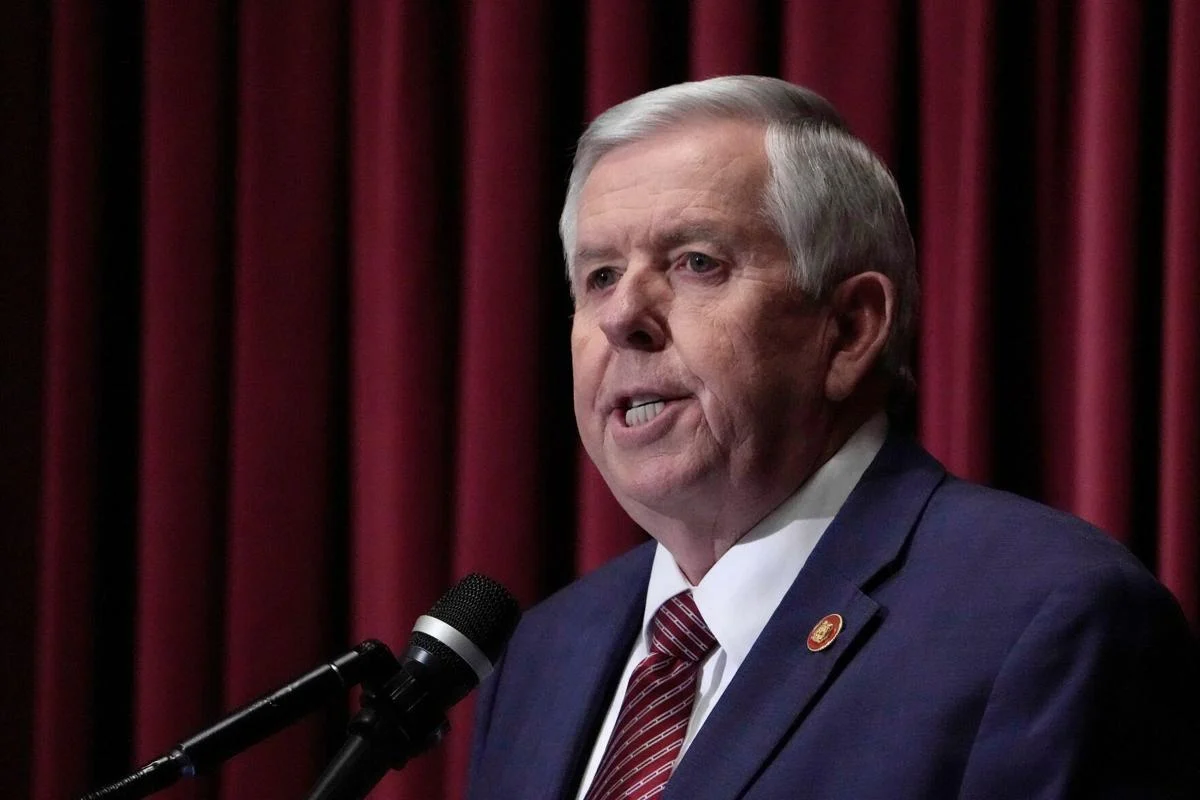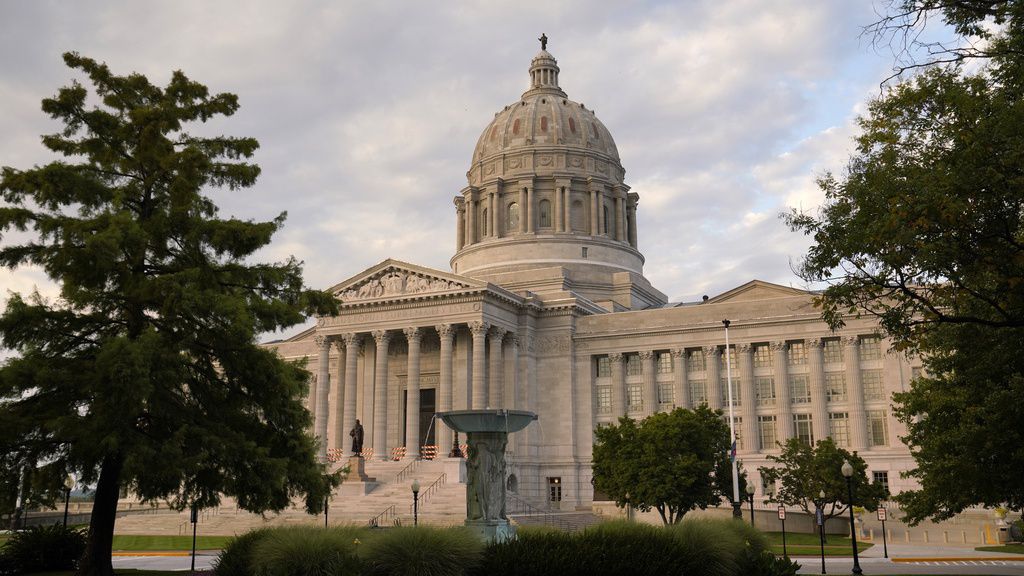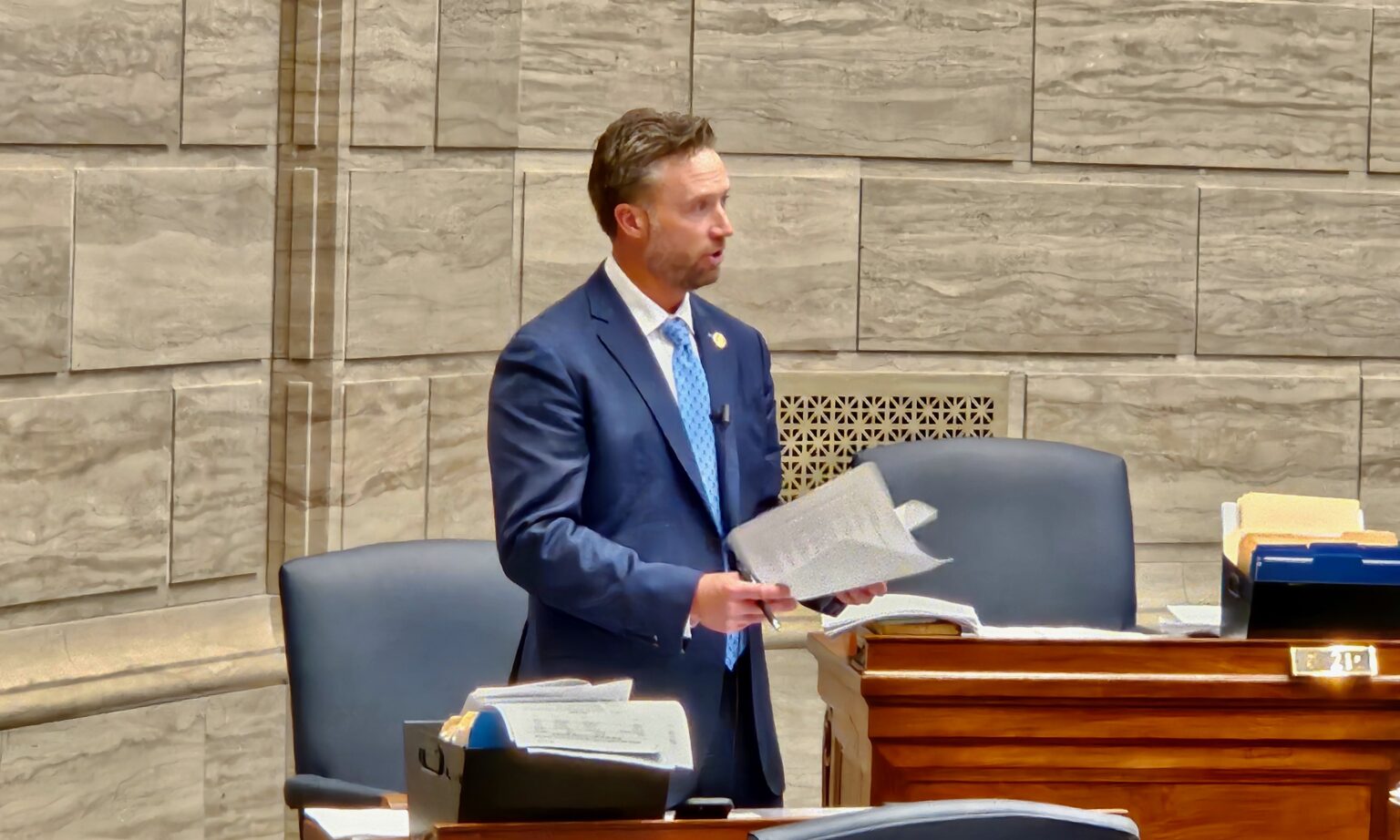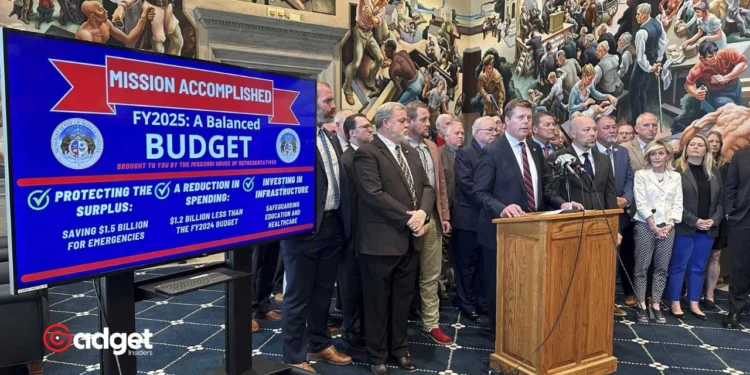The Missouri legislature has officially passed a $51.7 billion budget, coming in under the wire with the deadline looming at 6 p.m. on a tense Friday. This fiscal plan, approximately $1 billion less than what Governor Mike Parson initially proposed, was thrust through the legislative process with several lawmakers raising concerns over the lack of transparency and haste in which it was handled.

The Crunch for Time
The final hours leading up to the budget’s passage were fraught with tension. The House and Senate faced a significant challenge as they worked up until Thursday evening without having passed the budget bills through the Senate. This delay in proceedings meant there was no time left to convene a conference committee, a critical step typically used to reconcile differences between the House and Senate versions of the budget.
Two Republicans wrote the budget for the state of Missouri behind closed doors.
No transparency. Zero oversight. What a scam. https://t.co/LeDxkSwZpO
— Jess Piper (@piper4missouri) May 11, 2024
Concerns Over Government Transparency
This expedited process drew sharp criticism from House Democrats. Representative Peter Merideth of St. Louis voiced his dissatisfaction loudly, stating, “This is not normal. And it is not transparent. And it is not good government.” His concerns were echoed by others who feared the rushed timeline might lead to overlooked errors and future financial complications.

Key Budget Allocations and Legislative Tensions
Despite the controversies, the budget includes significant allocations for several crucial areas. State K-12 education will see a continuation of funding, state employees are set to receive a 3.2% raise, and public higher education institutions will benefit from a 3% funding increase.
The Debate Over Fiscal Responsibility
The Senate’s role in the budget process also sparked a discussion on fiscal philosophy. Senator Lincoln Hough from Springfield emphasized the importance of crafting a “good fiscally responsible budget” in collaboration with the House, rather than overpowering it. This sentiment was aimed at fostering a more cooperative and less confrontational approach to budgeting.
Addressing Future Budget Corrections
House Minority Leader Crystal Quade of Springfield pointed out the budget’s deficiencies, suggesting that the real costs of several state programs were underestimated, necessitating future corrections either through a special session this year or a supplemental budget next year. Quade’s remarks highlight the ongoing struggle to balance immediate fiscal goals with long-term financial health.
Investments and Innovations in Missouri’s Infrastructure
A substantial portion of the budget is directed towards infrastructure, with notable investments including $727 million for improvements to Interstate 44. This allocation is part of what Representative Cody Smith of Carthage called “the single greatest investment in our state’s transportation infrastructure network.” Unlike previous expenditures, this funding was not specifically requested by Governor Parson, leading to uncertainties about his support.
Funding Challenges and Social Priorities
The budget’s passage was not without its detractors, especially concerning social services. Representatives like Deb Lavender of Manchester and Maggie Nurrenbern of Kansas City criticized the insufficient funding for home care workers and state workers in the Children’s Division, respectively. Their comments underscored a broader debate about the state’s priorities and the allocation of resources towards vulnerable populations.

Looking Ahead: Governor Parson’s Scrutiny and Potential Vetoes
The budget now awaits Governor Parson’s review. Last year, Parson vetoed $555.2 million citing financial stability concerns, and his absence from this year’s budget discussions suggests potential challenges ahead. As the state anticipates his response, legislators like Cody Smith stress the importance of understanding legislative intent and the historical context of budget items, signaling readiness for further dialogue.
This budget, despite its passage, leaves many questions about Missouri’s fiscal health and governance priorities. As discussions continue and adjustments are anticipated, the focus remains on balancing fiscal responsibility with the needs of Missourians across the state.










